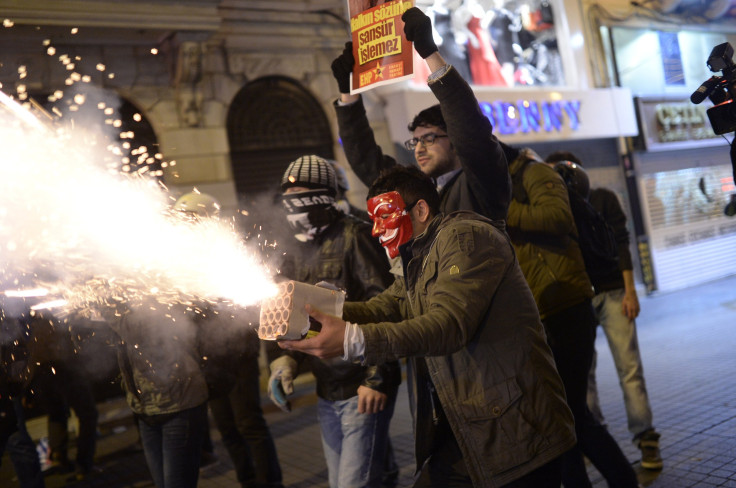Anonymous Cyberattacks Paralyze Turkey’s Bank And Government Websites

Turkey is reeling under massive cyberattacks purportedly carried out by the Anonymous hacktivist group. The targets of the attacks include the websites of banks and the government.
The two-week-long campaign intensified over the Christmas holiday period as scores of financial and state-run sites experienced distributed denial-of-service (DDoS) cyberattacks resulting in the crippling of transactions. Anonymous claimed responsibility for the attacks. The hacktivist group released a video saying it brought down the servers because of Turkey's alleged ties with the Islamic State group, formerly known as either ISIL or ISIS. Local media reported leading banks such as Garanti, Isbank and Ziraat Bank were among the targets.
"Dear government of Turkey, if you don't stop supporting ISIS, we will continue attacking your internet, your root DNS [domain name system], your banks, and take your government sites down," said a voice in the Anonymous video. "After the root DNS, we will start to hit your airports, military assets and private state connections. We will destroy your critical banking infrastructure," the voice said. The video has since been taken down by YouTube.
Experts say as many as 50,000 computers in Turkey inadvertently contributed to the ongoing DDoS cyberattacks, the rudimentary technique by which a website is flooded with traffic that eventually brings it down. This is not the first time Anonymous has taken on the Turkish government. When there were widespread protests against it in 2013, the hacktivist group launched a similar offensive against Ankara.
"The attacks are serious. But the target is not Turk Telekom. Instead, banks and public institutions are under heavy attack. A majority of Turkish institutions use Turk Telekom as the service provider, therefore we are the ones doing the defense against these attacks," Onur Oz, a representative of the internet service provider Turk Telekom, told Reuters. Some local media outlets had earlier suspected Russia was behind the cyberattacks as retaliation for Ankara's downing of a Russian warplane in November.





















